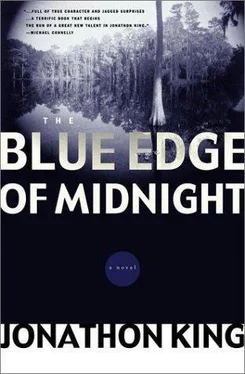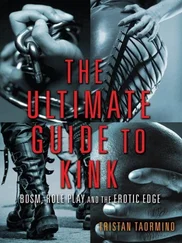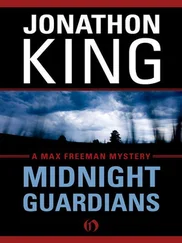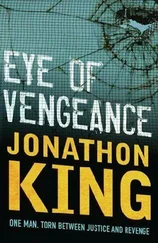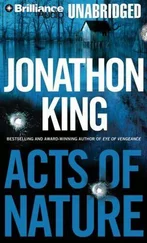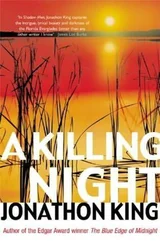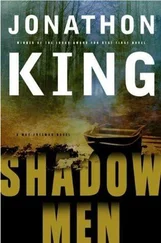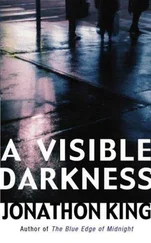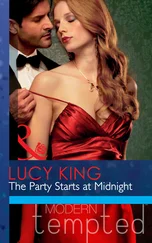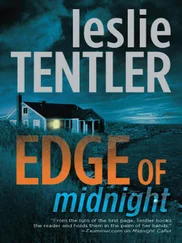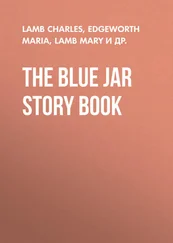Jonathon King - The Blue Edge of Midnight
Здесь есть возможность читать онлайн «Jonathon King - The Blue Edge of Midnight» весь текст электронной книги совершенно бесплатно (целиком полную версию без сокращений). В некоторых случаях можно слушать аудио, скачать через торрент в формате fb2 и присутствует краткое содержание. Жанр: Триллер, на английском языке. Описание произведения, (предисловие) а так же отзывы посетителей доступны на портале библиотеки ЛибКат.
- Название:The Blue Edge of Midnight
- Автор:
- Жанр:
- Год:неизвестен
- ISBN:нет данных
- Рейтинг книги:4 / 5. Голосов: 1
-
Избранное:Добавить в избранное
- Отзывы:
-
Ваша оценка:
- 80
- 1
- 2
- 3
- 4
- 5
The Blue Edge of Midnight: краткое содержание, описание и аннотация
Предлагаем к чтению аннотацию, описание, краткое содержание или предисловие (зависит от того, что написал сам автор книги «The Blue Edge of Midnight»). Если вы не нашли необходимую информацию о книге — напишите в комментариях, мы постараемся отыскать её.
The Blue Edge of Midnight — читать онлайн бесплатно полную книгу (весь текст) целиком
Ниже представлен текст книги, разбитый по страницам. Система сохранения места последней прочитанной страницы, позволяет с удобством читать онлайн бесплатно книгу «The Blue Edge of Midnight», без необходимости каждый раз заново искать на чём Вы остановились. Поставьте закладку, и сможете в любой момент перейти на страницу, на которой закончили чтение.
Интервал:
Закладка:
"What kind of scene, Mr. Freeman?" Hammonds said.
"A dead child. Wrapped up. Just above the dam."
Cleve was the only one in the group that registered any true shock.
"Jesus, Max," he said, looking at the faces around him.
"Let's get a team out here," Hammonds said to no one in particular as he looked out over the water, his block chin tipped up into the air.
CHAPTER 3
Within an hour they knew what I knew and I was left guessing. That's the way conversations go with good investigators. Even in supposedly friendly interviews. You answer their questions, offer your observations, try to be cooperative. They nod their heads, encourage the dialogue, make nice, and give you squat. By the time you walk away you feel like your pockets are empty and you just made a really bad deal with a door-to-door salesman. No wonder lawyers tell you to just say no and close the door.
The only line I'd been able to read between their questioning was that this wasn't the first kid they'd found. There had been others. I couldn't tell how many or where. I also knew I was a suspect. The first person who comes across the body in a homicide always is. I didn't have to be told not to leave the state.
In two hours a crime scene truck was parked on the boat ramp and Cleve was loading up his park service Boston Whaler. Hammonds had decided not to wait for daylight. Cleve had tied a spare canoe to the stern cleat. In this high water, and with his knowledge of the river, he could get them up to the dam. From there they would have to take the other boat up to the body. Hammonds, Diaz and two others climbed into the Whaler and Cleve started it up with a rumble, got the men to cast off his lines and then chunked it into gear and slowly motored out onto the river.
The woman detective stayed at the ramp, talking to two crime scene technicians and into a cell phone at the same time. When she finally snapped the portable shut and took a step toward me, I stood up from my interview spot on the dock and gave her my back.
"I'm going home," I said over my shoulder, waiting for an objection that never came.
I dragged my canoe into the water. Out to the west I could see Cleve's portable spotlight flickering in the mangroves. I'd be far behind. As I pushed out and settled in for a first stroke, I stole a look over my shoulder and saw the woman standing back, four feet from the water line, arms crossed over her chest, following me with her eyes.
As I paddled, the knots in my shoulders from the hours of sitting and answering questions started to work themselves out. It was still a good hour from sunrise. The river was now unnaturally quiet. I could pick up the low undulations of Cleve's outboard even though they had to be a mile ahead. But the motorboat's passing at this hour had effectively turned off the millions of live sounds along the banks and in the thick mangrove islands. The frogs and insects had shut up, wary of the man- made noise and movement, and fallen into the survival cover of silence. I'd interrupted their natural rhythm with my nightly paddling. But as I'd learned to smooth my passage, and perhaps as the river world got accustomed to my months of slapping through the night, it had simply adapted. Even the lower species do that.
I got back into my own rhythm: a reach, a pull through, finish with a light kick. A soft slurring of black water. I was grinding again. The dead child's face was in my head, mixing with the kid on a Philadelphia sidewalk. The FDLE team would have to spend some time up at the scene. But what were their options other than recovery? You couldn't cordon off a river. And despite the overblown tales of forensics, you weren't going to lift prints from the trees.
But I knew they'd pass right by the old stilted research shack I was living in, and while the weathered, hundred-year- old Florida pine construction caused the place to nearly disappear into the cypress forest, I wondered if they would squeeze the location out of Cleve. Would he swing them up through the overgrown channel to my porch? Would they rummage through the place without a warrant like I had done myself not so many years ago as a cop? It was illegal, but when we knew we had a chance to find evidence on some mope and wanted either to find something to convince us or find something to clear him and get him off the list, we did it. It was called efficiency in the face of urgency. Sometimes people, even the innocent, get used.
If they found something that took me off their list it would be a relief, but the idea of Hammonds sorting through my cabin caused me to pick up the tempo and I started driving the canoe hard.
By the time I reached the entrance to the forested section of the river, the first hint of dawn was peeling back the darkness in the eastern sky. But only a dozen or so strokes into the cypress canopy the air went wet and thick and too dark for the uninitiated. The FDLE crew must have started questioning their decision not to wait for daylight the minute they motored up into this blackness. A man can adjust, but can never be natural in such a place. He has genetically bypassed it, developed different sight, hearing and scent. But like someone only partially blind, I could make it back through my neighborhood by reading the unseen landmarks, feeling the current, the swirl of eddies, the familiar pools.
A half mile in I slowed at the pond apple outcrop, felt for the slight shift in water drifting west, and let it lead me. Two column-like cypress trees marked my entryway. A shallow- water entrance took me back fifty yards off the main river to a small dock platform. From there, steps climbed up to my back door. There was no one in sight. Not an unnatural sound save my own.
I looped a line from the dock around the bow seat and climbed out onto the landing. Then I bent to the first step of the staircase and under the glint of dawn looked carefully for a pattern in the moisture. No careless feet. The surface was undisturbed. Shortly after I'd moved in here, a friend suggested I hook up some kind of alarm system. He was convinced I'd be the target for uninvited explorers and bone-headed adventurers who might think that any cabin this remote belonged to anyone who could find it. I thought about it, but after several months of being here, I dismissed the idea. By listening and absorbing every sound, I reasoned, I would hear anyone sloshing and grunting and disturbing the flow of the place.
If I wasn't here, an alarm system wasn't going to stop anyone with an intent to break in anyway. It wasn't your typical neighborhood. Who was going to come running if an alarm went off? And even if someone broke in, there was little inside of value to take.
The cabin had been built at the turn of the century by a rich Palm Beach industrialist who used it as a vacation hunting lodge. It was abandoned in the 1950s and then rediscovered by scientists, who, bent on mapping the patterns of moving water in the Everglades, used it as a research station. When their grants dried up it was abandoned again. When the stock market and the economy tumbled in the oil crisis of the 1970s, the family that held deed to it put it on the market. The friend who set me up in it didn't go into its ownership. He simply arranged to collect $1,000 a month from my investment portfolio, and paid the bill.
I didn't argue the price. In the odd way of the world, the shooting in Philadelphia had left me with both damage and opportunity.
For ten days after my shooting on Chestnut Street I'd been silent, unable to get words through my swollen throat. Then I faked my inability to speak for another week.
The media stir that buzzed with the deaths of two boys quickly moved on to the next video disaster they could spin up onto the six o'clock news. Officers I worked with or had been friendly with called me to see how I was and to say that the shooting was clean. Once the crime scene and shoot team guys had documented that the first kid's gun had been fired, and Casamir's recollection of the events didn't waver, they quickly closed the investigation.
Читать дальшеИнтервал:
Закладка:
Похожие книги на «The Blue Edge of Midnight»
Представляем Вашему вниманию похожие книги на «The Blue Edge of Midnight» списком для выбора. Мы отобрали схожую по названию и смыслу литературу в надежде предоставить читателям больше вариантов отыскать новые, интересные, ещё непрочитанные произведения.
Обсуждение, отзывы о книге «The Blue Edge of Midnight» и просто собственные мнения читателей. Оставьте ваши комментарии, напишите, что Вы думаете о произведении, его смысле или главных героях. Укажите что конкретно понравилось, а что нет, и почему Вы так считаете.
